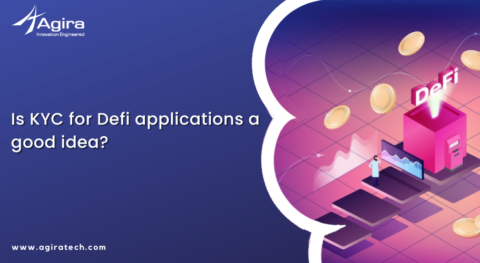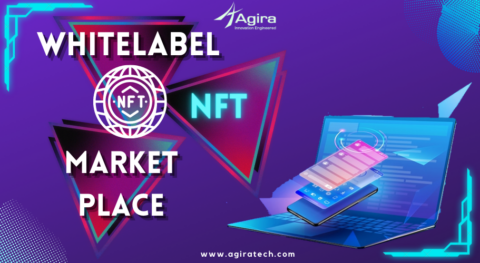Non-Fungible Tokens (NFT) have seen a massive rise in interest over the last year. With growing popularity comes growing threats to its security. NFTs’ rapid growth has made them cybercrime victims. Fraudsters and scammers try to devise more creative ways to cheat the system and make a fortune.
Hackers use more sophisticated technology to steal tokens and money despite its uniqueness and secure architecture. Phishing, selling fake work, and converting authentic artwork to NFTs without the artists’ consent are all types of fraud in the NFT world. Although art thieves do not have the right to sell other artists’ works, nothing stops them. Hence, it is best to be aware of all possible vulnerabilities when developing and maintaining your own NFT marketplace.
Main risks of NFTs
Smart contract vulnerabilities
Smart contracts are an essential feature of any blockchain. They support all NFT transactions and transfer of ownership. Hence, programming a well-secured Smart Contract makes it extremely hard for hackers to tamper. Crypto Punks, a popular NFT project, was affected by a bug in 2017 that allowed the attacher to buy a crypto punk and take the money back from the contract. Leaving smart contract bugs unaddressed will leave it exposed to hackers to exploit.
Marketplace and NFT security risks
NFTs are decentralized platforms that allow users to buy and sell digital assets. On the contrary, an NFT collector reported a theft of $2.2 million worth of his tokens. This made users question the platform’s decentralization and its contradiction to crypto philosophy. Centralized platforms too have their setbacks. Platforms like Open Sea and Nifty Gateway, which are centralized, own the private keys of all assets on their platforms. This means that if their platform is compromised, several accounts can get hacked in a short time.
Cybersecurity issues and NFT fraud
Setting weak passwords or clicking on suspicious links also leads to fraud. A security fraud in Rarible led the hacker to steal a user’s NFT and crypto tokens in a single transaction. The malicious NFT executes a JavaScript code and attempts to send a setApprovalForAllrequest to the user. Once the user submits the request, the hacker gains full access to the NFTs or crypto tokens. Users should reject suspicious requests and examine them further before providing authentication. Some scammers also organize NFT airdrops which ask users to transfer crypto only to cover transaction fees when the requested amount is much higher.
Authentication process and current concerns
NFTs are anonymous as the real names of artists and avatars remain unknown. This opened up a new world for artists to display their work without being judged. Since there are no laws or regulations for NFTs, it has made NFTs ideal for hiding illegal money. Even the largest NFT markets don’t follow KYC procedures. Despite concerns, no reporting of such cases has happened.
Efficient measures to protect NFTs
In the NFT domain, additional precautions to protect your NFT are essential, as a small mistake on the user’s side would cost him a fortune. Hence, prevention is always better than cure.
Give instructions on necessary security measures
Make sure you instruct or guide your marketplace users about the security measures. Provide them with basic security instructions like two-factor authentication (2FA), creating a strong password, and to use NFT hardware wallets purchased only from official manufacturers. Hard wallets are more secure than hot wallets as they are not connected to the internet until the user plugs them into the computer. Also, remind your users not to share their secret recovery phrase or store it on any device. Advise them not to sharing their screen while using their crypto wallets.
Perform smart contract audits
Before deploying the project, assess the code and analyze and detect any flaws or threats. Taking help from a smart contract audit company ensures that your smart contracts are secure and bug-free.
Adhere to the decentralization principle
NFT markets should not have access to private keys and should be decentralized. In centralized platforms, all private keys remain stored within the platform, which is risky. Hence, we recommend accessing NFT through multi-signature.
Closing thoughts
Fraudsters and hackers are always on the lookout to make easy money. As an NFT marketplace owner, design your terms of service carefully. This will protect your company from various legal issues. Protecting the user’s intellectual property and ensuring data privacy builds trust among your NFT community and helps sustain yourself in the market. For further details on security concerns, reach out to our Agiratech executive.










